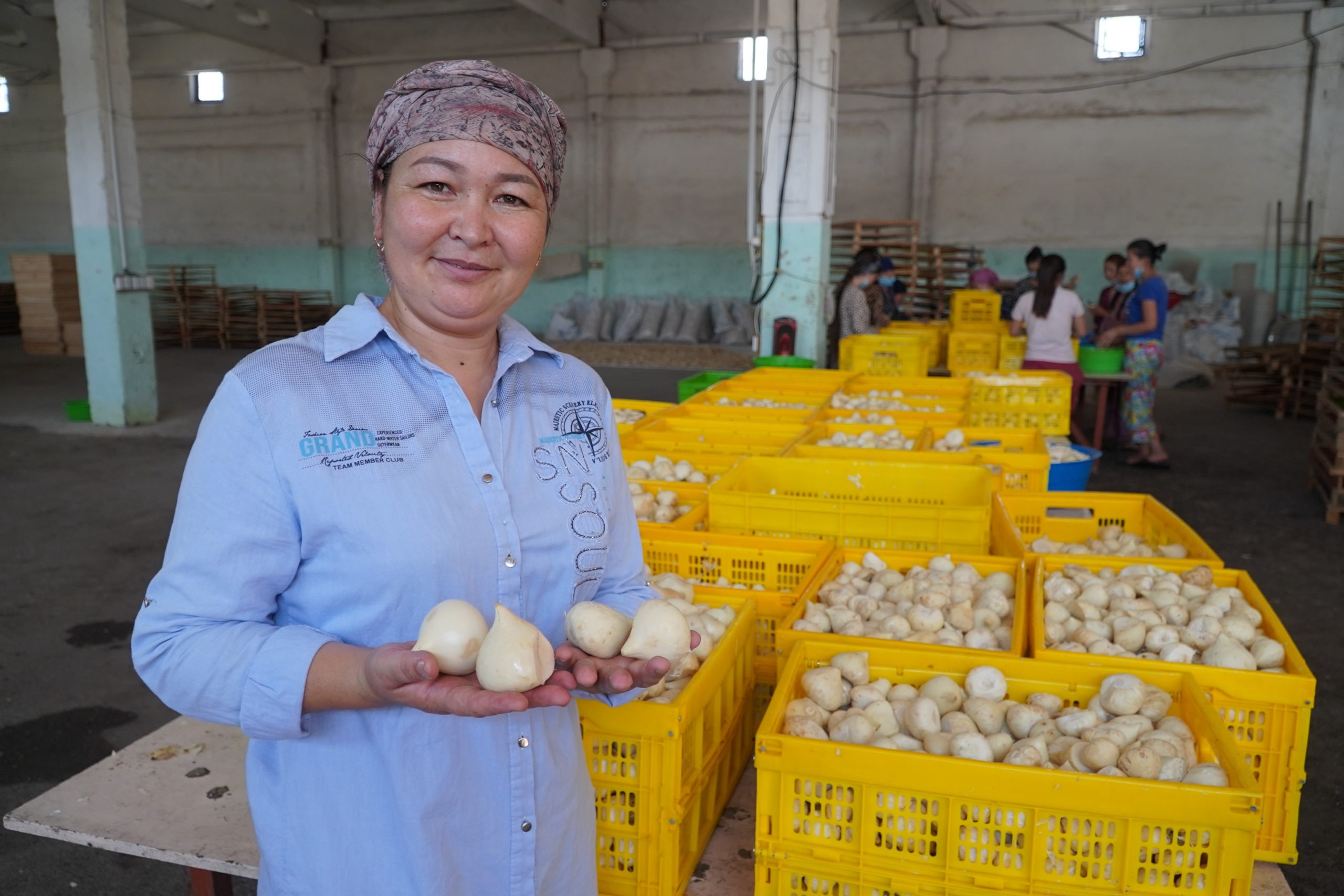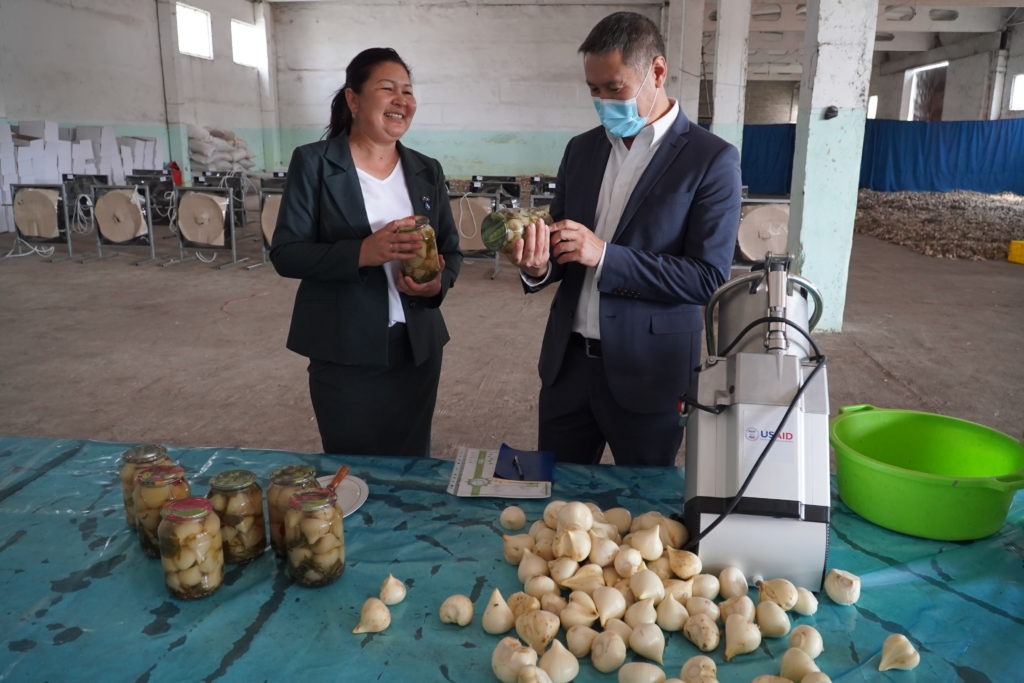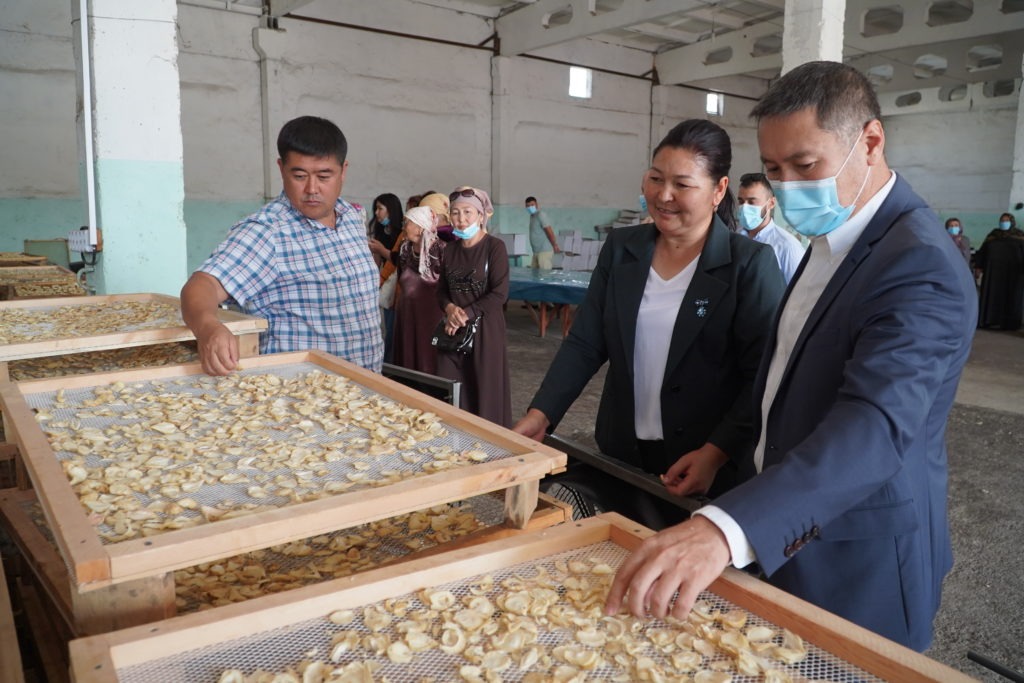
Janylai Kaparova continues to expand her business by processing wild garlic (Allium ursinum, also known as “bear garlic”) in the busy district center of Jalal-Abad Oblast in the Kyrgyz Republic. Dried and preserved wild garlic are in great demand, especially in Uzbekistan, Dubai, and Turkey, but the processing is time and labor-intensive. Since 2021, the USAID Kyrgyz Republic Agro Trade Activity has supported Kaparova, a private entrepreneur, and her supplier farmers with training, consultations, and drying and packing equipment.
ACDI/VOCA has partnered with Chemonics to assist the implementation of the five-year activity aimed at boosting job creation, value chains, and the business-enabling environment in the agricultural sector. ACDI/VOCA leads aspects of the Activity related to adding economic value through more inclusive jobs and sales, particularly for female farmers and agribusiness owners in the south. ACDI/VOCA also supports cross-border and regional trade between the Kyrgyz Republic and Uzbekistan.


Kaparova took part in trainings focused on wild garlic cultivation, processing, and preserving. She represented one of more than 500 households who learned about growing wild garlic and applying a new blanching method to preserve it. The method reduces the time spent soaking garlic in salted water by three times and optimizes the canning process from one hour to 10 minutes. Moreover, it keeps pace with the green economy, as blanching saves 2,000 metric tons (MT) of water, 100 kilograms of salt, and labor energy to preserve another 100 kilograms of wild garlic.
“This autumn shows that our productivity increased by 100 percent compared to the last year. I was able to strengthen business ties with farmer suppliers by supplying wild garlic seeds and paying for machinery services. Our processing workforce has grown to 36 new workers.”
— Janylai Kaparova, a female business owner supported by the USAID Kyrgyz Republic Agro Trade Activity
To date, Kaparova has exported 120 MT of dried and preserved garlic and will export at least 60 MT more by the end of the year. She supports smallholder farmers and enables their access to sustainable markets. “Engaging smallholder supply chains, we’re able to drive inclusive growth and boost rural livelihoods,” Kaparova said. “Training and technical expertise enable farmers to transition to sustainable practices.”
Recently, she signed a new contract to supply 100 MT of dried and preserved produce to the Republic of Uzbekistan, which will bring more work and profit for her business and suppliers.
Photos by Nadira Makhkamova
Learn more about the USAID Kyrgyz Republic Agro Trade Activity.
Learn more about our work in the Kyrgyz Republic.








